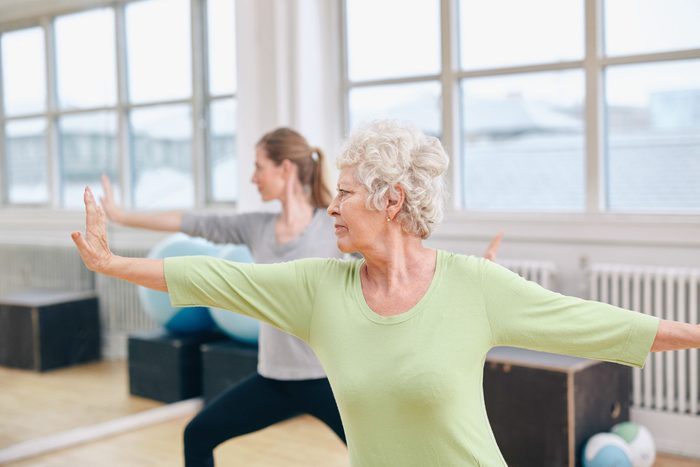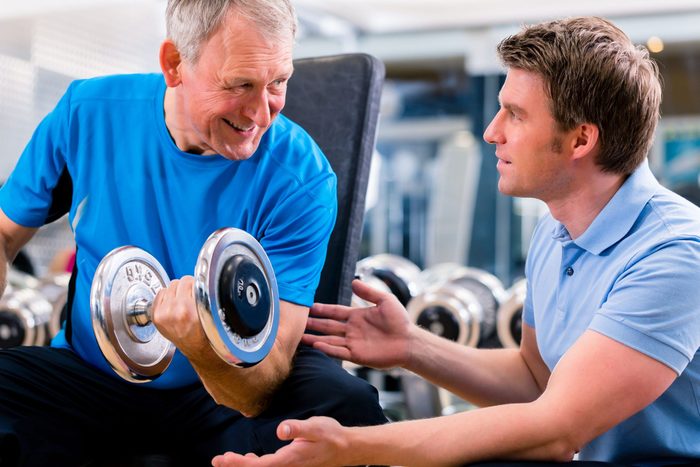
1. Get a professional opinion
As a senior, fitness is probably one of the last things on your mind. But you still need to get the right amount of exercise to be healthy. Check with your doctor if you have concerns. Discuss the kinds of activities you’d like to engage in and the potential impact they could have on any pre-existing conditions.

2. Start slow with exercise
Overdoing your exercise routine in the beginning is the number one reason why people give up, so remember to pay attention to signals your body is sending you. If it hurts, don’t do it. If it makes you dizzy, stop. If all else fails, don’t underestimate the power of walking: it’s inexpensive and therapeutic.

3. Follow your heart
Despite what people may tell you, exercise should be fun. Choose activities you enjoy. Hate the idea of running on a treadmill? Try hiking. Dislike lifting weights? Try swimming. If you adore cycling and ride your bike regularly for pleasure, you could wind up fit by default.

4. Make exercise a habit
When it comes to physical activity, the more you do, the more you can do. Start by establishing a routine. Eventually, you can set goals for yourself, like committing to exercise four days a week for several months. Before you know it, exercise will become second nature-you may even look forward to it.

5. Manage expectations
You won’t lose 20 pounds after a few visits to the gym-this is a long-term project. The objective isn’t to look in the mirror and see the person you were 40 years ago (if we’re being honest, that’s impossible). Instead, try imagining the best version of yourself that you can be right now.

6. Start taking senior fitness classes
Having a little company as you exercise can be inspiring and fun. Your local community centre or gym may have senior fitness programs that feature yoga, swimming or aerobics. These programs are affordable and can help you meet like-minded people who can encourage you to meet your goals.

7. Connect with a personal trainer
A personal trainer can tailor a senior fitness plan to your specific strengths and limitations. While many aging Canadians have chronic health problems and legitimate concerns about injury, the biggest barrier to getting enough exercise is often psychological, and a trainer can help with that.

8. Believe in yourself
The benefits of regular physical activity are astronomical, from controlling stress levels to lowering the risk of heart disease and stroke. Over time, these benefits will reveal themselves, and you’ll enjoy discovering them. Exercise may not be a cure for aging, but engaging in it will get you to the finish line in style.
Related features:
3 Best Supplements To Improve Stamina
11 Eating Habits To Help You Lose Weight
How Much Water Should You Drink To Stay Hydrated?